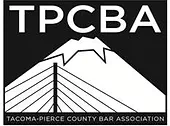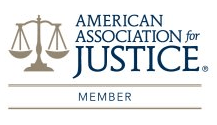Washington Traumatic Brain Injury Lawyer
Dedicated Washington Traumatic Brain Injury Lawyer Advocates for Maximum Compensation on Behalf of Brain Injury Victims in King County, Lewis County, Pierce County, Thurston County, and Throughout WA
Traumatic brain injuries, while often not visible, are one of the most serious potential consequences of an accident. A TBI can leave you with weeks or months of medical treatment, lost income, or permanent disability that negatively impacts your personal and professional life. After suffering a traumatic brain injury in an accident that was caused by someone else’s negligence, get experienced legal help to pursue the financial recovery you need and deserve. Reach out to Smith Duran Law today for a free initial case review to discuss how a Washington traumatic brain injury lawyer from our firm can help you succeed in recovering compensation in your claim.
Types of Brain Injuries
Some of the more common kinds of traumatic brain injuries include:
- Mild brain injuries, also known as concussions
- Contusions, or brain bruise
- Hemorrhage, or brain bleed
- Hematoma, or pooling/clotting of blood in the brain or in between the brain and skull
- Diffuse axonal injury, caused by the shearing of nerve cells in the brian
- Penetrating brain injury, or a TBI caused by a foreign object penetrating through the skull into the brain
Symptoms of a Brain Injury
A brain injury can have a wide range of symptoms. The specific symptoms that a brain injury victim may experience will usually depend on the severity of the injury. Common symptoms of mild brain injuries include:
- Brief loss of consciousness lasting several seconds to several minutes
- Blurred vision, ringing in the ears, and/or a bad taste in the mouth
- Sensitivity to light to sound
- Headache
- Nausea and/or vomiting
- Drowsiness/fatigue
- Difficulties with speaking
- Dizziness
- Feeling dazed or confused
- Memory or concentration problems
- Mood changes or mood swings
- Difficulty falling asleep
- Sleeping more than usual
Symptoms of a moderate or severe traumatic brain injury may include:
- Loss of consciousness for several minutes to several hours, or onset of coma or vegetative state
- Persistent or worsening headache
- Persistent nausea and vomiting
- Convulsions/seizures
- Dilated pupils
- Draining of clear fluid from the nose or ears
- Incoordination
- Profound confusion
- Agitation and combativeness
- Slurred speech
- Difficulty waking up from sleep
- Weakness or numbness in fingers and toes
Treating a Traumatic Brain Injury
Treatment for a traumatic brain injury will depend on the severity of your injury. For example, mild TBIs usually require no treatment other than rest, although OTC pain relievers may be used to help with headaches. However, someone who has been diagnosed with a mild TBI should watch themselves for persistent or worsening symptoms, which might indicate that they have suffered a more severe injury than they thought.
A moderate or severe brain injury requires immediate medical attention. Emergency treatment for a moderate/severe TBI is initially focused on maintaining blood and oxygen flow to the brain, and reducing swelling. This may be accomplished through medications to prevent seizures and reduce swelling, as well as surgery to repair physical damage to the brain or to relieve pressure on the brain from swelling.
Once a traumatic brain injury is stabilized, treatment becomes focused on rehabilitation services to help an injury victim relearn skills and resume an independent life. Services may include physical therapy, occupational therapy, speech therapy, psychotherapy, recreational therapy, or vocational counseling.
Long Term Consequences of Brain Injuries
After a moderate or severe brain injury, you may have to deal with serious consequences or complications from your injury for years or potentially for the rest of your life. These complications may include:
- Increased risk for seizures, fluid buildup (hydrocephalus), and secondary infections in the brain
- Increased risk of degenerative brain diseases such as Alzheimer’s disease or chronic traumatic encephalopathy
- Paralysis
- Altered senses or loss of senses
- Intellectual difficulties
- Difficulties with communicating or understanding written or spoken word
- Trouble with social situations
- Behavioral and emotional changes
What Compensation Can You Recover in a Traumatic Brain Injury Claim?
With a legal claim, you may be able to secure financial recovery for expenses and losses you incur because of a TBI. Our firm will fight to maximize your compensation for:
- Your medical and rehabilitation expenses
- Costs of long-term personal and medical care for permanent disabilities or impairments that result from your brain injury
- Loss of wages or income, or loss of future earning ability, when your injury renders you unable to work
- Physical pain and emotional distress
- Loss of quality of life due to disabilities or visible scarring and disfigurement
Let a Washington Traumatic Brain Injury Lawyer Help You to Demand Accountability for the Harm and Loss You Have Suffered
If you have suffered a brain injury, turn to a Washington traumatic brain injury lawyer from Smith Duran Law for help with all the details of preparing and pursuing your legal claim for compensation, including:
- Investigating the accident that caused your injury and obtaining evidence that we can use to build your case
- Identifying liable parties and applicable insurance coverages that can compensate you
- Calculating your past, ongoing, and future expenses and losses
- Filing claims on your behalf and handling negotiations to try to get you fair and full compensation in a settlement
- Going to court or to trial if necessary to demand maximum financial recovery for you
Contact Smith Duran Law for a Free Case Evaluation to Speak with a Washington Traumatic Brain Injury Lawyer from Our Firm
Do not delay starting a legal case to get the financial compensation you need to recover from a devastating traumatic brain injury. Contact our firm today for a free, no-obligation consultation to learn more about your legal options in your case with our Washington traumatic brain injury lawyer.
Frequently Asked Questions about Traumatic Brain Injury Claims in Washington State
In Washington State, the statute of limitations on injury claims typically gives you three years from the date of an accident or incident that caused your brain injury to file a lawsuit against the party or parties responsible for your injury and losses. Don’t wait to file suit; if you do, you risk the limitations period expiring on your claim and lose your opportunity to demand financial compensation from those at fault for your brain injury.
Yes. Washington law allows an injury victim to pursue a claim for compensation even if they were partly at fault for causing their own injuries. An injury victim can still pursue a claim even if they were 99 percent responsible for causing their injuries. However, any settlement or court award that an injury victim can receive will be reduced in proportion to their share of fault for the accident or incident that caused their injury. For example, suppose you incurred $250,000 in losses due to your brain injury and you were 20 percent at fault for the accident that caused your injury. In that case, your compensation can be reduced by $50,000 to reflect your share of fault and you can only collect up to $200,000 in a settlement or in court.
Workers’ Compensation Lawyers
The Department of Labor and Industries manages claims for injuries at work. You are entitled to money for lost wages, medical treatment, vocational retraining, loss of body function, and in some cases a pension.
LEARN MOREPersonal Injury Attorney
If your injury was caused by someone other than a co‑worker, an auto accident, or defective equipment, you may be entitled to additional compensation. Our personal injury attorney in Tacoma will evaluate your case.
LEARN MORE








